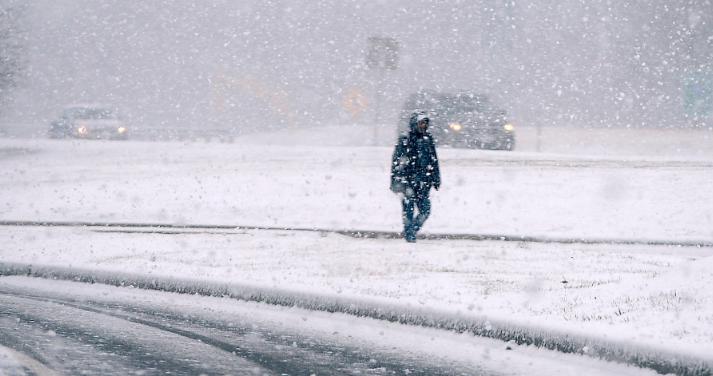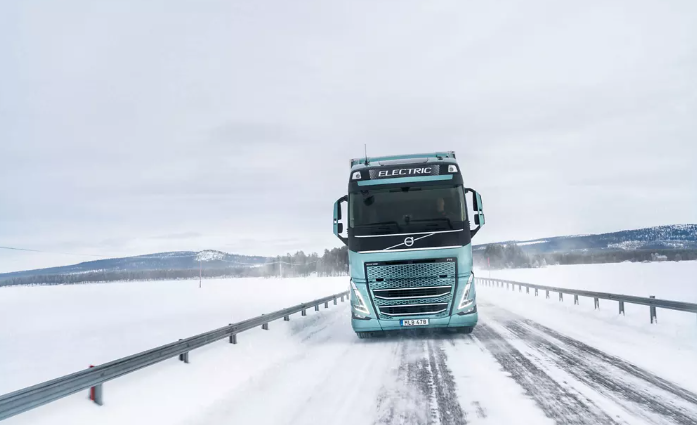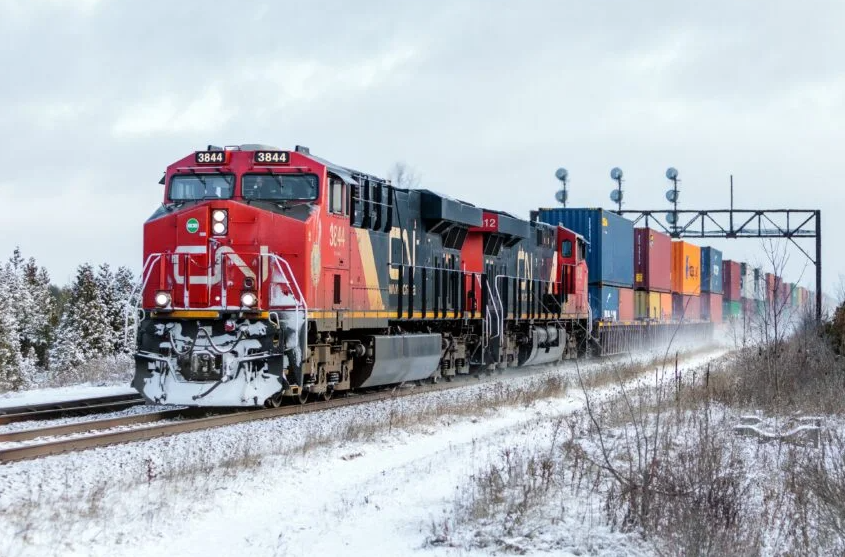Be your Logistics Department in China
Customized logistics solutions, your logistics expert in China
Customized logistics solutions, Shipping from China to the World
Tel:+8613424475220 Email:info@viputrans.com 
As the global climate undergoes significant shifts, one sector that increasingly feels its effects is international logistics. For businesses involved in transporting goods between China and Russia, the winter months present both opportunities and challenges. Climate change is altering weather patterns, and in turn, it is having a noticeable impact on the transportation of Chinese exports to Russia, particularly through truck and rail transportation.
Over the past few decades, Russia has experienced more extreme winter conditions, which include heavier snowfall, colder temperatures, and a higher frequency of ice storms. These changes are more pronounced in Russia's vast Siberian region, where China’s exports often traverse long distances by rail and road. The unpredictability and severity of these weather changes have direct consequences on logistics operations, making it more challenging for both truck and rail transportation.

Road Conditions and Safety:
The rise in snowfall and freezing rain can significantly affect road conditions, creating hazards such as icy roads and low visibility. This not only slows down the pace of transportation but also increases the likelihood of accidents, which can lead to delays and additional costs. Furthermore, extreme cold temperatures can affect the durability and performance of trucks, especially in remote areas where access to maintenance services is limited.
Vehicle Performance:
Winter conditions demand specific vehicle adaptations, such as the use of winter tires and anti-freeze systems. However, the severity of climate change in winter may make these adaptations less effective, resulting in breakdowns and delays. For trucks carrying perishable goods, this risk can have severe consequences, including damaged goods and financial losses for businesses.
Route Disruptions:
Many of the routes used for transporting goods from China to Russia pass through mountainous and rural areas, where snow accumulation can lead to road closures. The availability of alternative routes is often limited, especially in remote regions. This can cause significant delays in delivery times, impacting inventory management and causing disruptions in the supply chain.

Infrastructure Strain:
Although rail transportation is generally more reliable than trucking in extreme weather conditions, it is not immune to the effects of climate change. Extreme temperatures and heavy snow can cause rails to contract or warp, leading to potential track damage. Snow accumulation on tracks and in rail yards can also slow down operations, increasing the time needed for unloading and loading goods. These disruptions can extend transit times, which may lead to increased costs for businesses.
Locomotive Performance:
Modern locomotives are designed to withstand cold weather, but prolonged exposure to extreme temperatures may still strain their performance. Diesel engines, which are often used in Siberian rail lines, are especially vulnerable to cold, requiring frequent maintenance and possible delays during fuel delivery. Additionally, any interruptions in fuel supply due to winter storms can exacerbate transportation bottlenecks.
Increased Energy Demands:
In winter, rail operators may need to use additional energy to maintain optimal conditions for train travel. For example, heating systems are used to keep critical parts of trains functional, such as brakes and air-conditioning units. Energy-intensive solutions like these add to the operating costs, which can lead to higher freight charges and less predictable transportation timelines.
Impact on Ports and Depots:
Russian ports, such as those along the Trans-Siberian Railway, also face disruptions due to winter weather. Freezing temperatures and ice buildup can create delays at rail yards, reducing the efficiency of unloading and reloading containers. Additionally, rail depots may face logistical challenges in organizing the flow of goods as icy conditions slow down operations.

Mitigating the Impact of Climate Change on Transportation
While climate change poses significant challenges, there are several measures that can be taken to mitigate its impact on truck and rail transportation between China and Russia.
Technological Innovation:
Advances in vehicle and locomotive technology, such as automated anti-icing systems for trucks and temperature-sensitive rail lines, can help improve safety and operational efficiency during extreme winter conditions. Real-time tracking systems can also help logistics companies anticipate weather disruptions and adjust routes or schedules accordingly.
Strategic Route Planning:
Logistics providers can mitigate delays by optimizing winter routes. For instance, using roadways and rail lines less prone to snow and ice accumulation, or diversifying transportation modes, can help maintain the flow of goods. In areas prone to extreme weather, having contingency routes in place can ensure that goods are still transported with minimal disruptions.
Improved Communication and Coordination:
Proactive communication between logistics providers, drivers, and rail operators can ensure better coordination. By sharing real-time weather forecasts and adjusting delivery schedules, businesses can minimize delays. Additionally, having contingency plans in place, such as stockpiling inventory in strategic locations, can reduce the negative impact on supply chains.
Collaboration with Local Authorities:
Partnerships with local governments in Russia can help improve winter road conditions, as well as ensure that transportation routes remain open. Investment in better snow removal systems and track maintenance during the colder months could reduce the impact of winter on logistics operations.
The impact of climate change on winter truck and rail transportation between China and Russia is undeniable. As weather patterns become increasingly unpredictable, logistics providers will need to adapt by embracing technology, optimizing routes, and enhancing collaboration with local authorities. By taking proactive steps, businesses can ensure that the movement of goods from China to Russia remains efficient and reliable, even in the face of harsher winter conditions.
If you are interested in this, you can contact me at any time.Shawn.Liao(Mr.) Phone/Wechat/Whatsapp/Skype: +8618926970495E-MAIL.:sales04@viputrans.com;
For exporters and logistics professionals alike, staying ahead of these changes will be key to maintaining competitiveness and mitigating disruptions in the supply chain.
Copyright © 2003-2025 VIPU Supply Chain Logistics Co., Ltd. | All Rights Reserved
LOGISTICS | E-COMMERCIAL FULFILLMENT | ABOUT US | CASE | NEWS | VIDEO | CONTACT US
We will find the fastest or the cheapest way for your shipment. Please specify: where from, where to, what to ship.